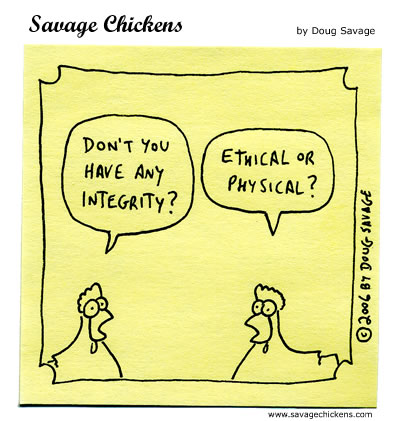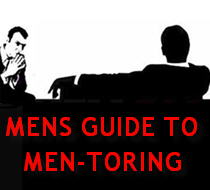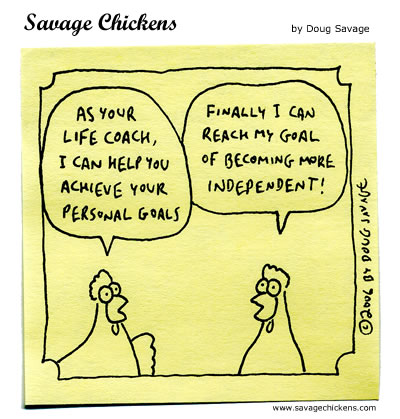 It's direct, straight to the point about how we are feeling, how we are handling our own individual lives, relationships, careers etc. There's no judgement - plenty of feedback though. We speak our truth. And we are prepared to be questioned on that (or to receive feedback) - it's great. High accountability to be as authentic, integral a man as we can be. Our partners and families support us taking time out of our lives, to I suppose, in business terms, work on our lives.
It's direct, straight to the point about how we are feeling, how we are handling our own individual lives, relationships, careers etc. There's no judgement - plenty of feedback though. We speak our truth. And we are prepared to be questioned on that (or to receive feedback) - it's great. High accountability to be as authentic, integral a man as we can be. Our partners and families support us taking time out of our lives, to I suppose, in business terms, work on our lives. 
Well another man joined us last night - a man whom we have not seen for some time. I was blown away by a statement from one of the other men (to this man):
"You are always welcome here. And you need to know that we will Never follow you up or chase you to be here."
Brilliant. In other words, each man takes his own responsibility for doing what is important to him - like showing up for this 'men's meeting' (although it has no name).
Then another man spoke of an email he had received from his partner (perhaps a cryptic hint) - it was a promotional email titled 'What is your excuse?' OMG - what a powerful, simple, yet complex question. Talk about knock me over with a feather. Here's what the email looked like and a link to the promo email online if you want to read it in full:
http://bit.ly/RJfz7
 The OMG response was due to the fact the business meeting I attended prior to this 'meeting of men' was about scoping my professional services to get a job done in the next 8 weeks that could/would/should take months, even years. But when asked, if it was realistic to achieve and deliver on the task; rather than give up excuses; I told them (first) that I was crazy and that yep it could be done. Of course the outcome has to be scaled to the time frame. The prelude to the question that received me 'I'm crazy' response, was that this particular outcome had not been achieved in the last 5 years since I had interacted with this group. And with all due respect, all I heard were (very valid) reasons why the outcome had not yet been achieved. Time to do something different I suppose. Nothing like just taking action and pulling a rabbit out of a hat.
The OMG response was due to the fact the business meeting I attended prior to this 'meeting of men' was about scoping my professional services to get a job done in the next 8 weeks that could/would/should take months, even years. But when asked, if it was realistic to achieve and deliver on the task; rather than give up excuses; I told them (first) that I was crazy and that yep it could be done. Of course the outcome has to be scaled to the time frame. The prelude to the question that received me 'I'm crazy' response, was that this particular outcome had not been achieved in the last 5 years since I had interacted with this group. And with all due respect, all I heard were (very valid) reasons why the outcome had not yet been achieved. Time to do something different I suppose. Nothing like just taking action and pulling a rabbit out of a hat.Funny, because that came up in conversation amongst the men over dinner - just taking action, any action and then adjusting with the circumstances. Now the Planners reading this are about to plot my demise (don't worry, I understand the 'Planner' archetype only too well - my wife is a self confessed planner). There is a time and place for sitting down, and planning things out, thinking them through - even I can attest to this, professionally this is required - but when does the planning, thinking, pondering, wondering, movie-making, dramatising, devil-advocating, nit-picking, procrastinating, putting off, reason generating, busy-busy too busy-to-start mask
 turn into:
turn into:EXCUSES
Ever heard the saying 'A man of his word' ? What do you believe this means? A man is what he says he is? He is what he says he'll do?
Perhaps it's closer to a man is judged on the net result of his promise (his word) + his action.
So here's the thing - if you have an addiction, let's say to caffeine or nicotine even, would it be fair to say that you could be identified as a coffee addict, or a smoker? Are smokers generally believed to be addicted to nicotine? [if you haven't answered Yes yet - just get on board for the sake of the point being made alright?] So we would generally call a nicotine addict, a smoker. We would generally identify them as a smoker [although this is not their identity at all]. Alright, enough metaphors, let's get to the point: if you are a Man of Your Word, and you make excuses all of the time - what would you be called? What would you be identified as?
Men are renound and relied upon in all cultures, societies and communities to jump in and take action. If you are living your life to the fullest, maintaining your own integrity, if you are honourable, on purpose - there surely would be No room for excuses...
The email said:
"If you're using the excuse that you're too busy to be happy, you've made a choice to be busy, and in the process, you've copped out on living your life on purpose. If you've substituted being busy for actively and happily fulfilling your destiny, you need to reexamine your priorities."
"...begin to examine just how you prioritize your life."
"Henry David Thoreau is right when he says that there are nobler faculties you need to pay attention to, in addition to all of those other details that occupy your life. If you fear the part of your soul that's calling you to a higher place, then you'll probably continue to haul out this particular excuse."
"...take time for myself to live the life that I came here to live, and to do it without ignoring my responsibilities as a parent, spouse, or employee."
Great stuff. Go on, answer the questions now as honestly as you can:
What is my Excuse?
Am I a man of my word?
How am I a man of my word?
What is my word?
What is my excuse?
 What is your means of means of maintaining your accountability, authenticity and integrity as a man.
What is your means of means of maintaining your accountability, authenticity and integrity as a man.Stop with the excuses. The excuse stop now. To quote another man from last night's discussion: "You either piss in the pot, or get off"
What is Your excuse?













